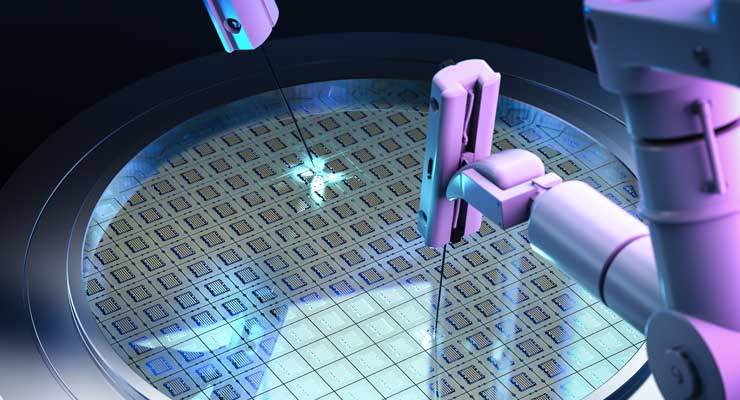- South Korean electronics giant Samsung revealed plans to construct 11 new semiconductor manufacturing plants in Texas.
- “Right now, Taiwan is the biggest manufacturer of semiconductor chips. There are questions about what would happen if China were to invade Taiwan.”
- Having Samsung’s semiconductor manufacturing facilities within the U.S. will ultimately alleviate some of the supply chain issues due to chip shortages.
In late July, South Korean electronics giant Samsung revealed plans to construct 11 new semiconductor manufacturing plants in Texas. This development is good news for America on a number of levels and represents a nearly $200 billion investment in U.S.-based chip manufacturing.
Chips are used in everything from cars and smartphones, to washers and dryers, so there is a huge demand for them. Two of the units would be in Austin and nine would be in Taylor, Texas, where Samsung has already unveiled plans to spend $17 billion on an advanced facility, according to Bloomberg. The first new production facility would not start operating until around 2034.
Boosting the U.S. Economy
“There has been a shortage of chips that has been brought about by the pandemic and the U.S. found itself in a position where we have more demand than what we can produce domestically, which puts us in a bad position since we are dependent on other nations,” Zachary Collier, Assistant Professor at Radford University, said. “So the fact that these companies have started to signal that they are willing and interested to build manufacturing facilities here helps us to alleviate some of those pressures and gives us some extra manufacturing capacity.”
Aside from Samsung, Collier says that Intel also plans to build semiconductor plants in Ohio, as well as GlobalFoundaries having plans to construct manufacturing plants in upstate New York. This is not only a huge boost to the nation’s economy and the jobs that it will bring, but it is also good for our national security, seeing as the chips will be made in house and there will be less concern for who is handling them.
Increasing National Security
According to Collier, one of the main reasons that Samsung is strategizing plans to build manufacturing plants in the U.S. is because of the CHIPS for America Act, which would provide about $50 billion in subsidies to bolster U.S. computer chip manufacturing. The bill cleared a procedural hurdle in mid-July in a 64-34 vote, which paved the way for the chamber to hold a vote on final passage. The bill would then travel to the House for passage before it would head to President Joe Biden’s desk for signature into law, according to CNBC.
“Right now, Taiwan is the biggest manufacturer of semiconductor chips. Their company, Taiwan Semiconductor Manufacturing Co., produces a huge chunk of the world’s chips,” Collier said. “There are questions about what would happen if China were to invade Taiwan, which would basically put the world’s largest producer of chips under their control, which would have some implications on chip security as well as the supply chain. I think this is one of the main reasons why the CHIPS for America Act is really important, because we want to make sure we know who manufactures chips.”
Easing Supply Chain Struggles
Having Samsung’s semiconductor manufacturing facilities within the U.S. will ultimately alleviate some of the supply chain issues due to chip shortages. While industry shortages will not go away overnight, the more we continue to reduce economic dependence on products from other countries, the faster and more vibrantly our economy will recover.
“Other countries are ramping up their in-house productions as well,” Collier said. “Europe is passing similar legislation to the CHIPS for America Act, and India is also trying to boost their chip production, as well. We can certainly work with some of our allies, but we need to try and make more products in house.”
